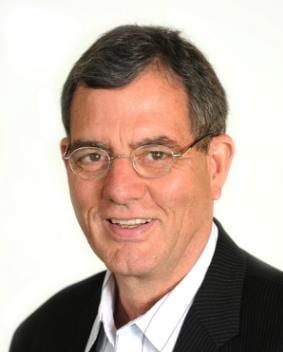Tim Stevenson has been fighting for his community for 28 years and has no intention of stopping anytime soon.
First elected to Vancouver’s city council in 2002, the openly gay United Church minister is running for a fourth term, now under the Vision Vancouver slate.
He was the first openly gay MLA in BC, the first openly gay provincial cabinet minister in Canada, and the first openly gay person ordained to become a minister in Canada.
“All of those have been fights,” says Stevenson. “I have for the past many, many years been front and centre. I’ve never backed away from any issue as it pertains to our community. I bring that experience; I bring that world view.”
“I am passionate about our community and I believe in our community,” he says. “I will continue to do that in the future as long as I am elected, and our community can count on me as they have in the past.”
Stevenson is especially proud of the progress made at city hall for the gay community over the last three years under a Vision/COPE majority on council, including the creation of the gay advisory committee.
“I’ve been advocating for [the committee] for some time but never was able to do it because I was just in opposition,” he says.
He is happy about Vancouver’s renewed commitment to kicking off the Pride celebrations at City Hall, saying that it had become a tradition under former COPE mayor Larry Campbell.
“When the NPA came into power last time, they completely dropped it and there wasn’t even a word or mention of gay, lesbian, transgendered — anything during that period,” Stevenson says.
“I also want to make sure that the whole sense of our community being welcome at city hall is embedded so that it can’t be changed in the future,” he says. “Never again will a political party say, ‘Oh well, we don’t think we’d like to have gays this year, thanks very much.’”
He believes there is still a lot of work to be done on rights, specifically for the transgender community. He suggests there are basic things the city can do to make Vancouver more inclusive and accessible for the community.
He also worries about the future of the traditional gay village in the West End, saying it is in danger of losing steam. “I am very concerned about Davie St and the need to make sure that remains a centre, a village for us. We need to work with the businesses to make sure that they thrive and that the Village does well. It is a place that the community can go and feel safe.”
He says that also means making sure there is a strong presence from the police in that neighbourhood.
Stevenson says interacting directly with Vancouver residents is his favourite part of his job as a city councillor. “It’s the only level of government, because we’re closest to the people, where people are able to come and speak their mind — what they’re happy about, what they’re angry about.”
Now seeing himself in a mentor role, he wants to encourage young people from the gay community to get involved in politics and run for office. “We need more in the legislature; we need more in the House of Commons. We need the voice of gay and lesbian people at the table, because we don’t want straight people speaking for us and for our issues,” he says.
“We have accomplished a great deal, but unless we have members of our community there in the decision-making process, our points of view will not be included.”

 Why you can trust Xtra
Why you can trust Xtra


